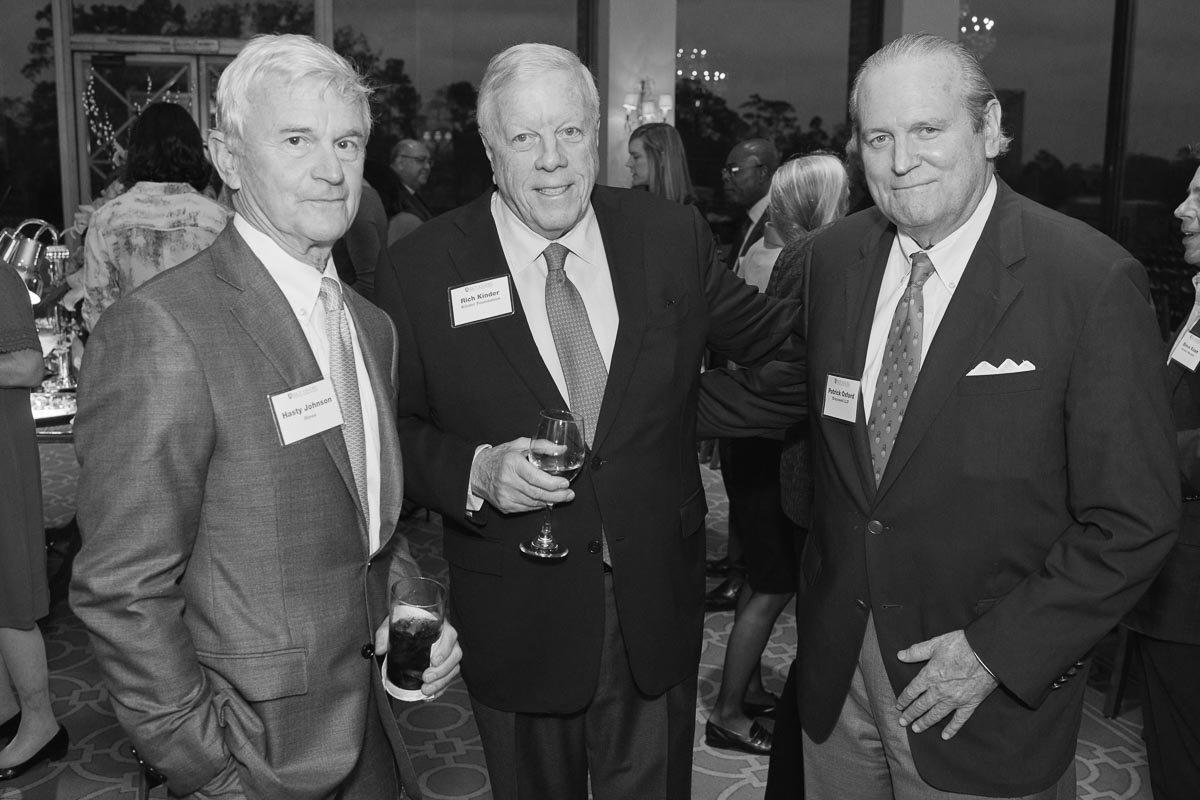Pat’s impact on Houston is impossible to overstate. Not only did he help build Bracewell into a leading law firm, but he also led an active civic life, serving as president of the Greater Houston Partnership and a board member of the Texas Medical Center and the MD Anderson Services Corporation. He was appointed by Gov. George W. Bush as a regent of the University of Texas. He participated in several presidential campaigns and was a close adviser to numerous important elected officials, including President Bush, Sen. Kay Bailey Hutchison, and Gov. Greg Abbott. In short, Pat did everything he could to help make Houston a great city.
Pat was a forceful presence at our quarterly Advisory Board meetings, always putting me on the spot with penetrating questions. But his importance to me and the Institute was far greater than that. I simply could not have come to understand Houston and how it functions without Pat’s help. Pat spent endless hours telling me about the city, its power structure, and the many facets of Houston I needed to understand.
Because Pat was old-school Houston, most of these lessons took place in the bar of the River Oaks Country Club over a gin and tonic or a vodka martini—always on Tuesday nights—after which we would adjourn to the dining room for further discussion. (He was old-school Houston in many other ways as well: He was unabashed in his belief that free-enterprise business growth would be beneficial to all, and he wasn’t afraid of seersucker suits.) His memory of the city went back more than 50 years, which meant he knew the backstory of everybody and everything in town. The Tuesday night discussions were, simply put, a master class in urban politics, economics, and sociology. We continued these sessions up until he withdrew from public life a year ago. I never stopped learning from him, and I loved every minute of it.
Many of the more colorful aspects of the backstories that conveyed to me I probably shouldn’t repeat in public, but suffice to say that I understood how power worked in Houston almost solely because Pat explained it to me on Tuesday nights. He was not modest about his connections around town, but he was modest about the impact he had—an impact that came about because he understood how to pull the levers of power and how to deftly use the interplay of private business law and political influence to get things done.
And he was not afraid to jump on something new in order to make something happen, even if he might break a few dishes along the way. In 2016, when the University of Texas bought 300 acres near NRG Stadium with the intention of establishing a bigger presence in Houston, Pat—a UT alum and former UT regent—was appointed to the committee charged with figuring out exactly what UT would do. Together on a Tuesday night we hatched a plan to create a major center focused on urban issues that cleverly included both UT and Rice, as well as possibly other universities in town. This idea, along with many others about the 300 acres, went down the drain when the University of Houston balked at the potential intrusion, and eventually, UT sold the land. But Pat’s enthusiasm for a big new venture to make Houston better was never dampened by any setback of any kind.
Pat was also surprisingly down-to-earth and would do anything to help somebody he liked. Several years ago, when I was buying a vacation home out of state, Pat offered to handle the closing in his office at no charge. And when it came time to notarize the documents, Pat pulled out his stamp. As it turned out, Patrick Cunningham Oxford—great legal mind, architect of Bracewell’s dramatic expansion, UT regent, adviser to governors, senators, and presidents—was, to the end of his life, a notary public. If you knew Pat, it made sense. Because if you were Pat’s client or his friend—and many of us were both—he would be prepared with anything you needed or gave you an advantage.
Pat’s passing is a huge loss for Houston in general and the Kinder Institute in particular, and we are forever grateful that he was with us for so many years and helped us shape the Kinder Institute that we know today. Our hearts go out to his wife Katie and his family upon his loss, and in the future, we will do our best to live up to the big expectations he had for how the Kinder Institute can make Houston a better place.

